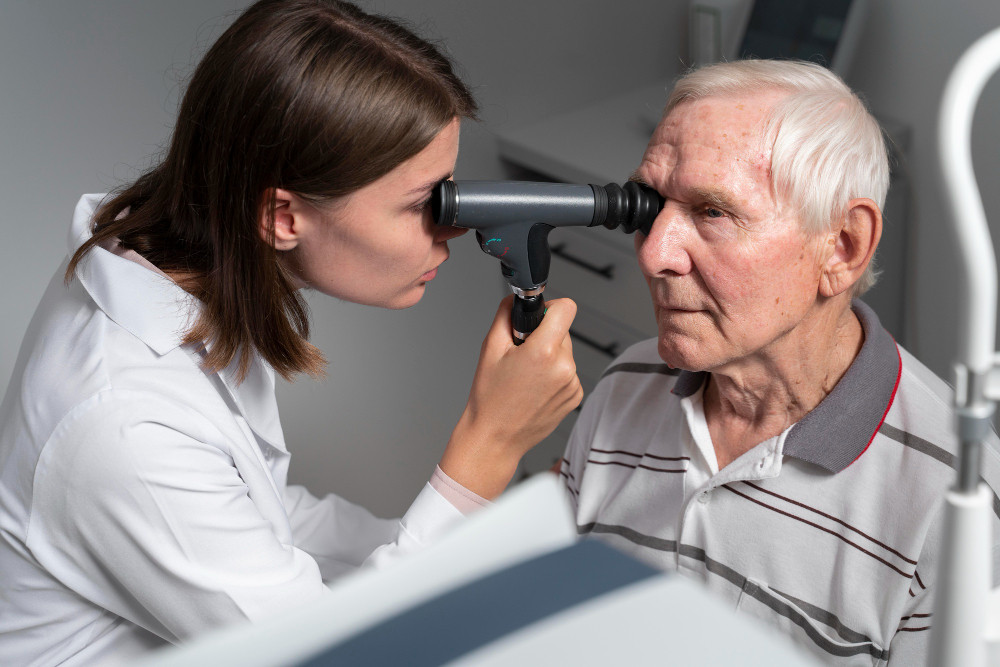Merokok diketahui memiliki dampak negatif pada kesehatan, terutama pada sistem pernapasan dan kardiovaskular. Namun, tahukah Anda bahwa merokok juga bisa berdampak negatif pada diabetes?
Kombinasi antara diabetes dan merokok menciptakan risiko kesehatan yang lebih tinggi. Ini juga dapat memperburuk kondisi tubuh secara keseluruhan.
Pengaruh Merokok pada Diabetes
Merokok dapat memengaruhi diabetes dalam banyak hal, di antaranya:
Memengaruhi kadar gula darah
Merokok dapat menyebabkan peningkatan kadar gula darah yang bisa berbahaya bagi penderita diabetes. Rokok mengandung nikotin, zat yang bisa memengaruhi produksi insulin. Nikotin dari rokok dapat menurunkan efektivitas insulin, sehingga tubuh tidak dapat menggunakan glukosa dengan baik. Akibatnya, kadar gula darah akan meningkat dan memperburuk kondisi diabetes.
Peningkatan kadar gula yang tidak terkontrol membuat diabetes menjadi lebih sulit diatasi. Penderita diabetes yang merokok sering kali membutuhkan lebih banyak insulin dan obat-obatan untuk menjaga gula darah tetap stabil.
Kerusakan pembuluh darah dan jantung
Orang dengan diabetes memiliki risiko lebih tinggi terhadap penyakit jantung dan pembuluh darah. Merokok dapat memperparah kondisi ini, karena rokok dapat merusak dinding pembuluh darah dan mengganggu aliran darah.
Nikotin menyebabkan pembuluh darah menyempit, sehingga darah yang membawa oksigen dan nutrisi tidak bisa mengalir dengan lancar ke seluruh organ tubuh. Bila ini terus-menerus terjadi, maka risiko penyakit jantung, stroke, serta gangguan pembuluh darah seperti aterosklerosis akan meningkat.
Baca Juga: Risiko Kesehatan Anak dan Bayi yang Sering Terpapar Asap Rokok
Peningkatan risiko komplikasi diabetes
Zat kimia lain di dalam rokok juga mempercepat proses peradangan di dalam tubuh. Peradangan kronis pada orang dengan diabetes mempercepat komplikasi diabetes yang lebih serius di antaranya:
Neuropati diabetik
Merokok dapat memperparah kerusakan saraf yang disebabkan oleh diabetes. Gejala seperti kesemutan, mati rasa, hingga rasa sakit yang tajam di kaki dan tangan sangat mungkin terjadi. Dalam kasus yang lebih parah, neuropati juga dapat menyebabkan luka terbuka yang sulit sembuh dan bahkan memicu amputasi.
Penyakit ginjal
Merokok meningkatkan tekanan darah yang dapat menyebabkan kerusakan pada pembuluh darah ginjal. Merokok terus-menerus dapat mempercepat perkembangan penyakit ginjal pada orang dengan diabetes yang dapat berujung pada gagal ginjal.
Baca Juga: Merokok Bisa Timbulkan Masalah Pencernaan Hingga Kanker
Gangguan penglihatan
Merokok juga mempercepat berkembangnya retinopati diabetik. Kondisi ini menyebabkan rusaknya pembuluh darah di retina. Apabila tidak diobati, kondisi ini dapat menyebabkan gangguan penglihatan yang lebih serius hingga kebutaan.
Penderita diabetes sangat dianjurkan untuk berhenti merokok demi kesehatan tubuh. Dengan menghentikan kebiasaan ini, aliran darah akan meningkat dalam beberapa minggu, kadar gula darah menjadi lebih stabil, dan tekanan darah pun menurun. Selain itu, berhenti merokok juga dapat mengurangi risiko komplikasi jangka panjang yang dapat membahayakan kesehatan.
Memiliki pertanyaan lain terkait dengan dampak negatif merokok? Anda bisa memanfaatkan layanan konsultasi kesehatan Ai Care dengan mengunduhnya melalui App Store atau Play Store.
Mau tahu informasi seputar penyakit lainya? Cek di sini, yah!
- dr Nadia Opmalina
Keri Wiginton (2024). Smoking and Diabetes. Available from: https://www.webmd.com/diabetes/smoking-and-diabetes
CDC (2023). Smoking and Diabetes. Available from: https://www.cdc.gov/tobacco/campaign/tips/diseases/diabetes.html
US FDA (2024). How Smoking Can Increase Risk for and Affect Diabetes. Available from: https://www.fda.gov/tobacco-products/health-effects-tobacco-use/how-smoking-can-increase-risk-and-affect-diabetes
Terri D'Arrigo (2023). How Does Nicotine Affect Blood Sugar?. Available from: https://www.webmd.com/diabetes/nicotine-blood-sugar
National Institute of Diabetes and Digestive and Kidney Disease (2021). Diabetes, Heart Disease, & Stroke. Available from: https://www.niddk.nih.gov/health-information/diabetes/overview/preventing-problems/heart-disease-stroke
WebMD (2023). What Is Diabetic Neuropathy?. Available from: https://www.webmd.com/diabetes/diabetes-neuropathy
National Eye Institute (2024). Diabetic Retinopathy. Available from: https://www.nei.nih.gov/learn-about-eye-health/eye-conditions-and-diseases/diabetic-retinopathy












